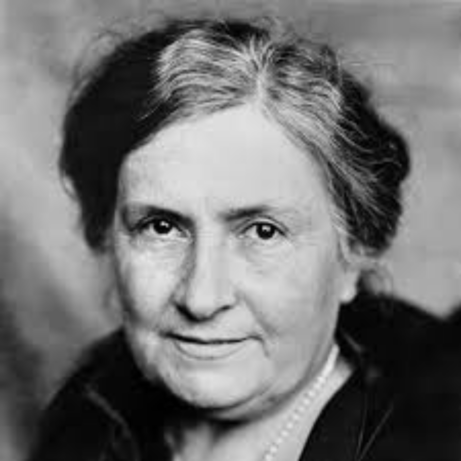Montessori and Religion

Montessori education is not inherently religious and does not, in itself, provide any form of religious instruction. However, it does purposefully encourage exploration, enjoyment and respect for all forms of human spirituality.
As you would expect of an Italian woman at the turn of the twentieth century, Dr. Montessori grew up in the Catholic faith and its influence can be clearly observed throughout her life: threaded throughout all of her work are the unshakeable beliefs in the sanctity of the human spirit, the fraternity of all humankind, and the pursuit of peace as the noblest effort we must undertake.
Already during her studies and especially after the success of her early work, Dr. Montessori began to travel extensively. During her lifetime she met with leaders in all areas of human accomplishments: scientists, artists, political and religious leaders, and those encounters and relationships deeply influenced her work and thinking. It is unclear how exactly Dr. Montessori’s religious beliefs continued to develop as she kept this part of her life private, but there is evidence she came to a principial dissent with the Catholic church, and also that she had meaningful ties to non-European religions and even esoteric philosophies, particularly through the Theosophic Society.
Ultimately though, as they say, the proof is in the pudding, and the legacy Dr. Montessori left us is one of profound humanism. Now, as a century ago, her work encourages and empowers children and adults alike to celebrate, develop and uphold our shared humanity.

Explore the fundamentals of Montessori parenting with this free video by Sylvia Arotin, offering insights and strategies to empower and educate your child.
Spirituality as a Fundamental Human Tendency
In Montessori theory, spirituality is listed as of the the five fundamental human tendencies: alongside and interconnected with the other four (work, exploration, group behaviour and the mathematical mind) it is understood as one of the universal drives shaping our shared human experience. The four chief aspects of Spirituality, usually given as Art, Music, Dance and Religion (including its secular, atheist or humanistic manifestations), are considered as present and innate to every human culture throughout the history of our existence. Dr. Montessori thus explicitly named religious and spiritual life as something that connects us rather than divides us.
Religion and the Cultural Curriculum
Most Montessori schools choose to present religion as a part of our cultural curriculum, both in the set materials and resources present in the classroom, and through actively involving the student body. As we encourage children from different language, ethnic or national backgrounds to study, share and celebrate each others heritage, so do we invite them to share their faiths, if they wish to: students are invited to bring photographs, artifacts, special clothing or stories and songs to the classrooms and learn to share their unique identity with pride.
Some schools (especially international schools with a diverse student body) organize cultural fairs when students act as ambassadors of their nations and cultures and teach attendees about them, including their faith backgrounds. Festivals and events are held as a way to honour and explore each other’s heritage. The same school might thus have special activities to celebrate Diwali, Mawlid, Hanukkah, Christmas and Chinese New Year in quick succession, allowing its students to experience wonder and beauty in each.
Adapting Montessori for Religious Instruction
The nature of the larger system of Montessori education – a decentralized global network of like-minded but ultimately independent educators and organizations – means that there is, of course, a vast diversity of religious beliefs amongs the individual schools and those who run them. As such, there is plenty of explicitly secular but also explicitly religiously oriented Montessori schools – from Muslim to Buddhist, Yoruba to Shinto.
Some of these schools choose, rather than presenting the cultural curriculum as described above, to adapt the Montessori principles and techniques for direct religious instruction. Those who succeed in blending faith education and Montessori focus on encouraging direct experience, the child’s active participation in the expression of faith through ritual and services, contemplation, and not at all least – enjoyment; as such, religion becomes yet another curriculum area in the classroom.
Possibly the best-codified system for this is the Catholic Catechesis of the Good Shepherd, developed first in the 1950s and later again in the 1980s. Its faith-based curriculum takes place in the Atrium, an extension of the classroom in which children study the liturgy through hands-on experiences and materials. Despite some of their proponents’ claims, Dr. Montessori was not at all involved in its creation and did not address its existence during her own lifetime.
Montessori education thus remains an aid to life in all of its richness and diversity – its benefits are rich for the taking whether its practitioners are atheist, devout or anything in between.
Montessori Beginnings
YOUR ULTIMATE
MONTESSORI PARENTING COURSE
FOR ZERO TO THREE
Gain clarity and confidence in your parenting to raise a resilient, independent and joyful child.


